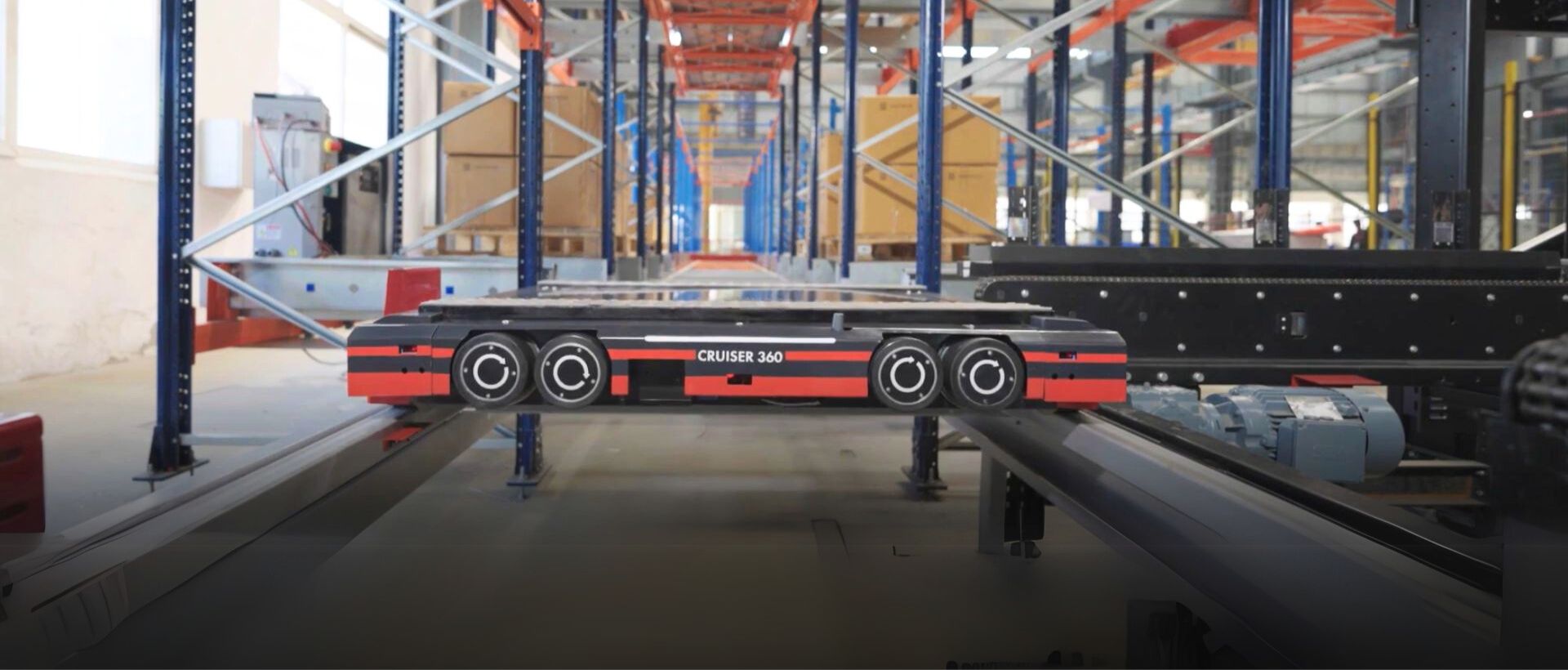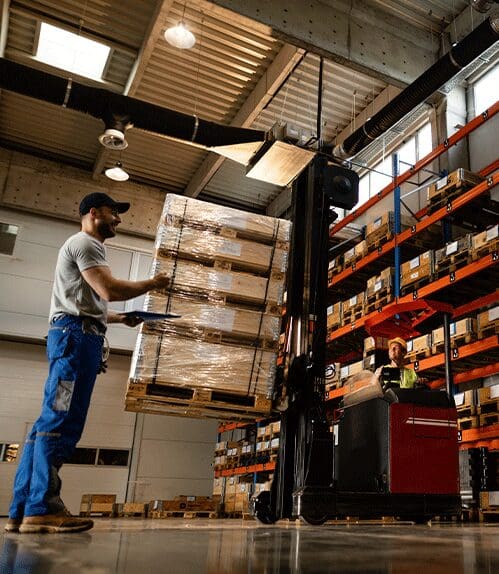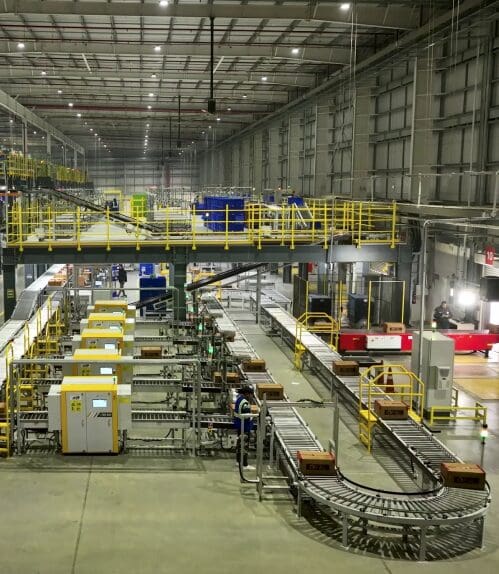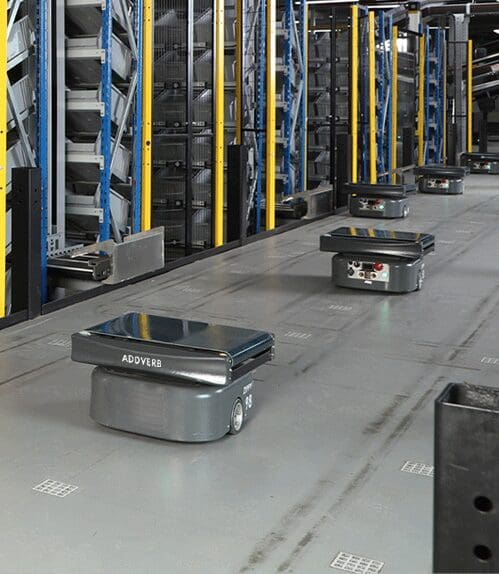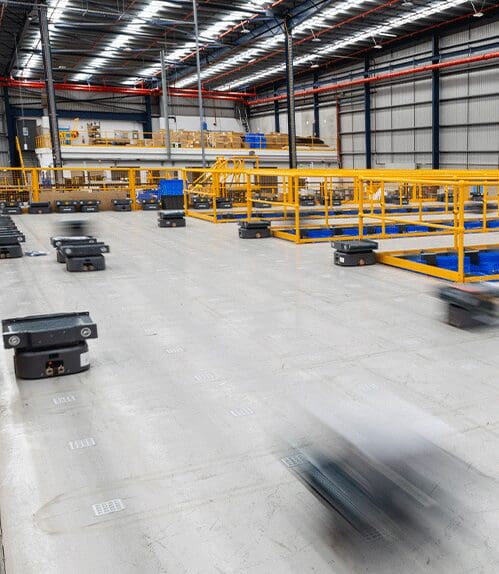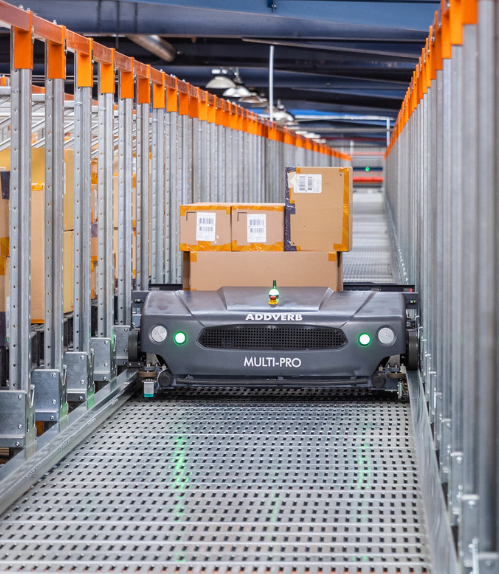Table of Contents
The modern supply chain is undergoing a seismic shift, and with it come unique warehouse challenges that vary across industries. From the explosion of SKU assortments in fashion to the stringent efficiency demands in grocery, businesses must adapt swiftly to stay competitive. The need for automation is no longer a futuristic concept it’s a present-day necessity.
Tailored automation strategies are key to addressing these industry-specific hurdles, ensuring seamless operations, optimized storage, and faster order fulfilment. Let’s dive into the critical challenges faced by different industries and the automation strategies that are transforming them.
Fashion: Tackling SKU Complexity and Reverse Logistics
The fashion industry is grappling with an explosion of SKU variety, leading to intricate handling processes, shorter delivery windows, and high return rates. Seasonal demand fluctuations further complicate inventory management, often resulting in outdated stock. Adding to the challenge is the necessity for omnichannel distribution from a single warehouse, requiring seamless process integration.
Common Automation Requirements: Reverse logistics, sorting, and picking solutions help streamline returns, accelerate order fulfilment, and optimize space utilization.
E-Commerce & Retail: Balancing Demand Volatility with Efficient Fulfilment
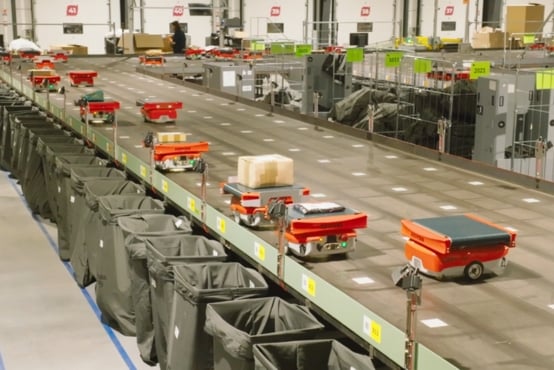
The unpredictability of consumer demand presents a major challenge in e-commerce and retail warehousing. Overstocking and stockouts are common pitfalls, especially during peak sales periods. The complexity of order consolidation across diverse product categories demands high-speed, accurate picking. Additionally, returns processing requires advanced inventory tracking and quality assurance measures to minimize inefficiencies.
Common Automation Requirements: Reverse logistics, sorting, and picking solutions enhance operational accuracy, reduce turnaround times, and improve inventory control.
Third-Party Logistics (3PL): Adapting to Dynamic Market Needs
3PL providers must manage ever-changing client requirements while navigating the constraints of short-term contracts. These contracts often result in redundant infrastructure investments, making flexible automation strategies crucial. Labor shortages further strain operations, while multi-customer warehouses struggle with space optimization. The need for omnichannel fulfilment and intricate returns handling requires scalable, efficient solutions.
Common Automation Requirements: Advanced warehouse management software, efficient picking systems, and optimized storage solutions enable 3PLs to scale dynamically while maintaining operational consistency.
Food & Beverage: Managing Diverse SKUs with Automation
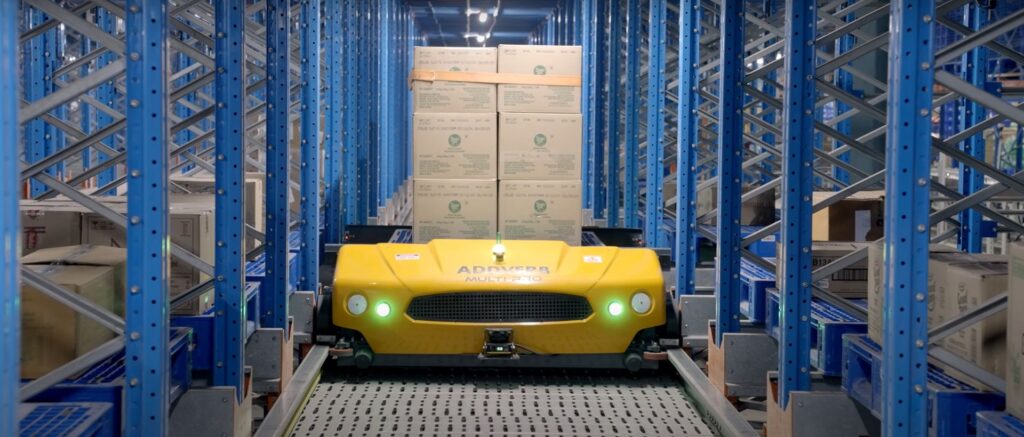
With a vast number of SKUs across multiple store formats, the F&B sector demands efficient storage and fulfilment solutions. The challenge intensifies with labour shortages and skill gaps, making workforce management a priority. Sustainable practices are also crucial, as businesses seek to minimize their carbon footprint while ensuring smooth operations during seasonal demand spikes.
Common Automation Requirements: Palletization, material transportation, and smart storage solutions help streamline operations and reduce waste.
Grocery: Navigating Low Margins and Omnichannel Complexity
Profitability in grocery retail is challenged by razor-thin margins and fluctuating consumer demand. Omnichannel operations add layers of complexity, requiring precise inventory management, fulfilment, and packaging strategies. Unlike other retail sectors, grocery warehouses must handle bulk cases and individual products efficiently. Speed is critical for quick commerce, requiring optimized sequencing and fast order processing. Additionally, perishable goods demand specialized cold storage solutions to maintain quality and freshness.
Common Automation Requirements: Picking, storage, and shipping solutions ensure rapid and efficient order processing, reducing spoilage and enhancing supply chain efficiency.
By leveraging the right automation strategies, industries can transform their warehouse operations, boosting efficiency, reducing costs, and staying ahead of the competition.
WHY CHOOSE ADDVERB?
Dense Storage Solutions: Our ASRS systems optimize storage by maximizing vertical space usage.
Intelligent Analytics: Our analytics offers efficient insights on inventory, slotting, orders, and performance.
Multi-Client Flexibility: Our mix of fixed and flexible automation helps you serve multiple clients.
Quick Commerce: Advanced solutions ensure rapid order processing and delivery for quick commerce initiatives.
Omnichannel Distribution: Revolutionize omnichannel distribution by effortlessly managing over 50,000 SKUS.
Efficient ASRS Systems: Our shuttle-based storage and retrieval systems are optimal for space utilization.
Advanced Software: Our warehouse management software helps real-time tracking and optimize operations.

